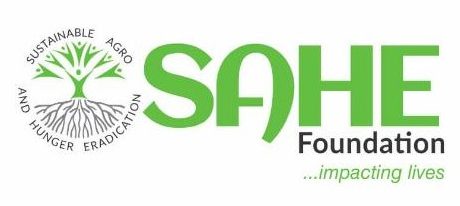WATER RESOURCE MANAGEMENT AND SUSTAINABLE AGRICULTURE
[Sustainable and efficient water management practices in agriculture are key to the success of the 2030 Agenda and offer many climate change benefits-FAO].
As documented by the Food and Agriculture Organisation (FAO) in ‘Solutions to Water Scarcity in Agriculture, water scarcity is one of the major challenges of the 21st century. There is unprecedented pressure and competition for water resources due to factors such as population growth and mobility, economic development, urbanization, changes in traditional diets, migration and pollution. FAO estimates that more than 40% of the world’s rural population in river basins are classified as water scarce (2011) and many countries are already withdrawing in excess of critical thresholds. This situation is exacerbated by growing climate change effects and bio-energy demands in many parts of the world including Nigeria.
Irrigation is by far the main user of freshwater in the world, with an average of 70% of all water withdrawals, reaching peaks of above 90% in many developing countries. For instance, Israel can be taken as a very good example of a country with “absolute” water scarcity (<500 m3 per year per capita). Water management in Israel is characterized by limited freshwater resources, poor natural distribution of those resources, and a growing and dispersed population. To turn this grim situation around, Israel has become one of the countries in the world that have dedicated the greatest efforts and resources to cope with water scarcity.
Nigeria can take a cue from here for effective water resource management by:
- Accumulating significant knowledge and developing effective strategies to foster productive agriculture in a context of water scarcity.
- Investing efforts through national water programs to promote irrigation research.
- Developing and promoting efficient irrigation technologies,
- Initiating close monitoring of water withdrawals.
- Commencing training and technical assistance to farmers.
- Investing in innovative water technology industries.
- Implementing new strategies to face the emerging challenges related to recurrent droughts, climate change, increased water demands and over-exploitation of groundwater resources.
Sustainable agricultural development seeks not only to conserve natural resources, but also to develop them, because future generations will demand more in quantity and quality in terms of agricultural and food products. These goals must ensure balance with the development of the livelihoods of the individuals concerned (Gayar AE 2021).
Water is one of the most important inputs to economic development. Water resource management, water quality management and environmental protection are the main concerns of sustainable development. As Martin and Martin (1991) note, “Water is the most valuable resource for humanity.” Water is the prerequisite for all forms of food production, “No water; no food.”
Many scholars have stated that water and water control are two major factors in the overall stability of a region. Unfortunately, most water-poor developing countries depend on insufficient solutions, resorting to the use of dirty water and untreated wastewater.
The future looks miserable if it does not succeed in formulating and implementing a water resource management approach that can match the limited supply of fresh water with increasing demand.

